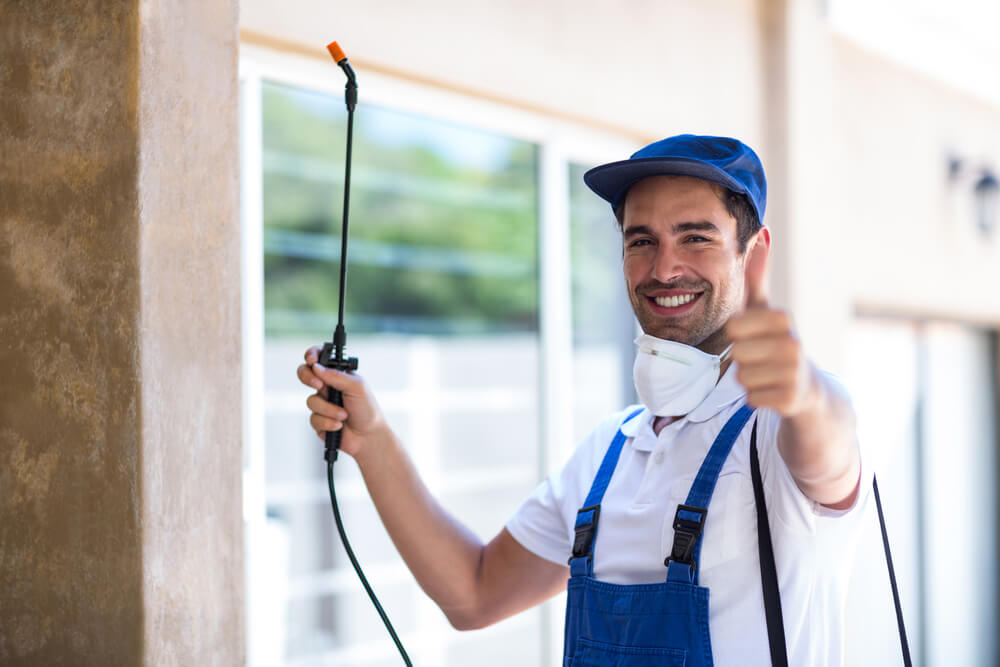Comprehending the Different Strategies to Bug Control: A Comprehensive Overview

Natural Pest Control Techniques
Using green strategies such as companion growing and biological insect control is vital for successfully taking care of pests in agricultural settings. Companion planting includes growing different crops in proximity to deter pests, improve nutrient uptake, and enhance general plant health and wellness.
Biological pest control entails presenting all-natural killers or microorganisms to regulate pest populations. Ladybugs, as an example, prey on aphids, regulating their numbers without the demand for chemical pesticides. One more instance is making use of Bacillus thuringiensis (Bt), a bacterium that targets certain insect pests while being harmless to humans, pets, and helpful pests.
These environmentally friendly methods not only lower the reliance on artificial pesticides but also assist preserve biodiversity and dirt wellness. By incorporating all-natural parasite control approaches into agricultural methods, farmers can accomplish sustainable insect management while lessening negative impacts on the setting.

Chemical Pest Control Solutions
Along with all-natural bug control approaches, the application of chemical bug control services plays a significant role in efficiently taking care of pest populaces in agricultural settings. Chemical parasite control solutions are developed to target specific pests that might create considerable damage to plants. These options frequently consist of artificial pesticides that are developed to eradicate parasites quickly and efficiently.
One of the key benefits of chemical parasite control solutions is their effectiveness in controlling pest invasions on a big scale. Farmers can use these solutions making use of different approaches such as splashing, airing out, or seed treatment to protect their plants from dangerous insects, weeds, and conditions. Furthermore, chemical bug control services are relatively very easy to apply and can supply quick outcomes, helping farmers safeguard their returns and reduce financial losses.
However, it is vital to use chemical pest control remedies sensibly to lessen potential negative influence on the environment, non-target organisms, and human health. Correct application techniques, adherence to safety standards, and normal surveillance are crucial to make certain the liable use chemical parasite control remedies in farming practices.
Organic Bug Control Approaches
Biological insect control approaches take advantage of natural killers or pathogens to take care of bug populaces in agricultural setups successfully. One typical organic control strategy is the introduction of all-natural opponents, such as ladybugs or parasitic wasps, to target certain bugs.
One more organic control method involves utilizing pathogens like viruses, fungi, or microorganisms to infect and blog kill insects. In general, biological insect control strategies offer a lasting and targeted service to pest monitoring in agriculture.
Integrated Insect Management (IPM)
Integrated Pest Management (IPM) is a comprehensive technique that integrates different parasite control methods to successfully manage and reduce pest populations in farming systems. IPM concentrates on long-lasting prevention of bugs via a combination of biological, cultural, physical, and chemical control methods. By integrating these different strategies, IPM intends to minimize dependence on chemical pesticides, decrease environmental effect, and advertise lasting bug management methods.
One trick aspect of IPM is using organic controls such as all-natural killers, parasites, and virus to control bug populations. This technique uses the power of nature to maintain a balance in between parasites and their all-natural adversaries without triggering harm to the environment.
In addition, IPM involves social techniques like plant habitat, rotation, and hygiene manipulation to develop undesirable conditions for bugs and disrupt their life process. Physical controls such as mulches, traps, and obstacles are additionally utilized to stop parasite infestations.
Physical and mechanical Parasite Control Methods
Making use of non-chemical approaches, look here such as mechanical and physical pest control strategies, is a crucial element of detailed pest management strategies, building upon the structure of Integrated Insect Management's all natural strategy. Mechanical insect control entails making use of physical obstacles or traps to stop parasites from accessing and damaging crops or frameworks. This technique can consist of methods like installing displays on windows, using row covers in agriculture, or using sticky traps to catch bugs.
Physical pest control methods, on the various other hand, concentrate on directly getting rid of pests through physical methods. For circumstances, making use of warmth therapies to get rid of bed insects or vacuuming up bugs like ants or spiders can be effective methods to take care of invasions without using chemicals. By integrating these physical and mechanical insect control strategies right into an Integrated Parasite Monitoring plan, individuals and specialists can lower reliance on pesticides while still properly reducing and managing pest populations damages.
Final Thought

In addition to natural parasite control techniques, the usage of chemical pest control remedies plays important source a considerable function in successfully managing pest populaces in farming atmospheres.One of the essential benefits of chemical pest control services is their effectiveness in managing pest problems on a big range.Integrated Bug Management (IPM) is a thorough technique that combines different pest control methods to efficiently take care of and decrease pest populaces in farming systems.Using non-chemical approaches, such as mechanical and physical parasite control methods, is a crucial element of comprehensive bug monitoring techniques, constructing upon the structure of Integrated Insect Administration's all natural method. By including these mechanical and physical insect control strategies right into an Integrated Insect Administration strategy, individuals and experts can minimize dependence on chemicals while still efficiently reducing and handling pest populaces damages.